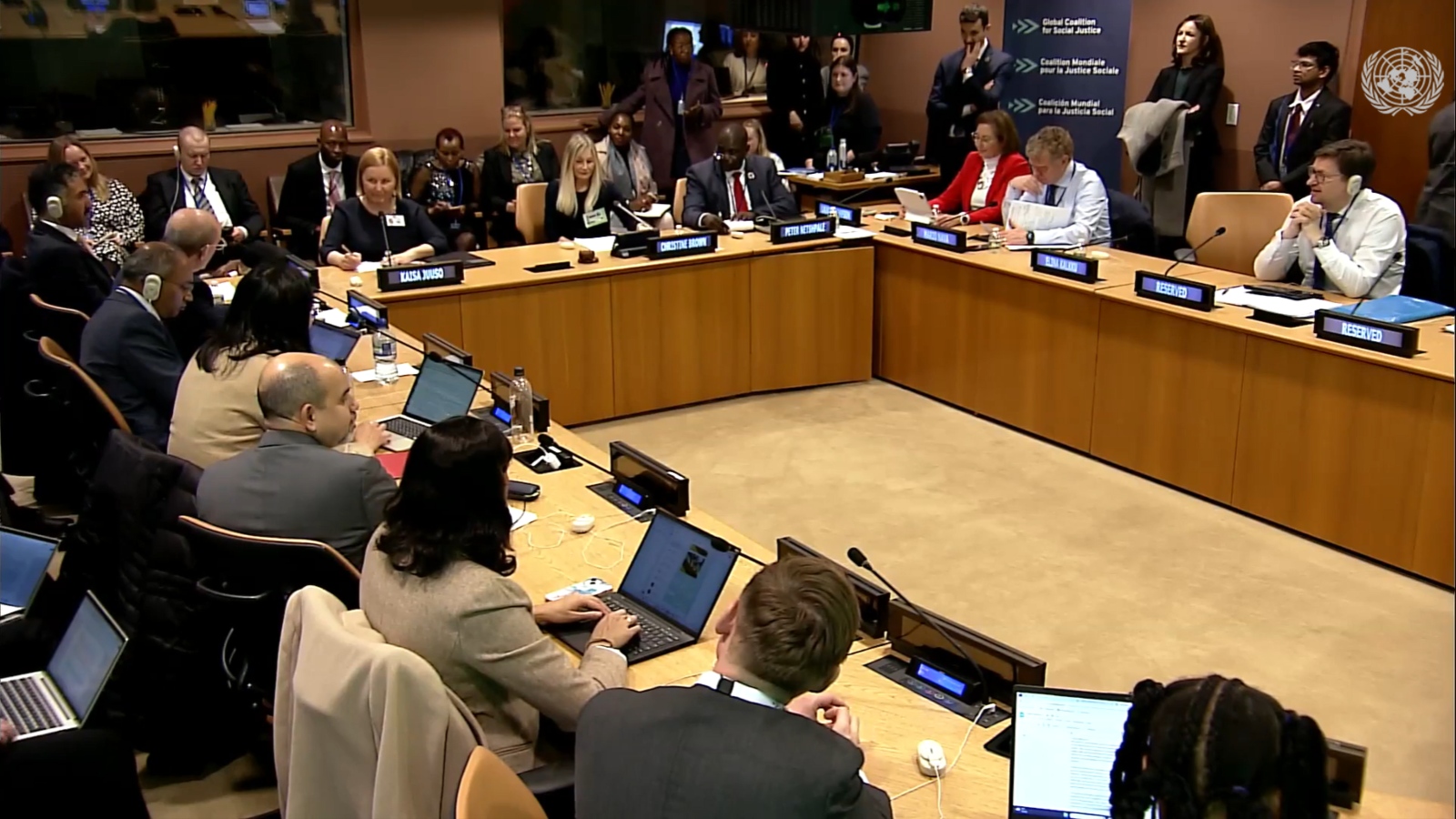
The CSocD63 side event, Towards the World Summit for Social Development: Economy of Wellbeing Approach and Social Justice as Investments for Future Generations, was hosted by the Permanent Missions of Finland and South Africa, the UN Research Institute for Social Development, and ILO’s Global Coalition for Social Justice. Moderated by Chris Brown, Head of the WHO Venice Office, the discussion focused on integrating social justice and well-being into economic policies.
H.E. Kaisa Juuso, Minister for Social Affairs of Finland, emphasized that social justice is fundamental to the UN’s mission. It fosters inclusive societies and economic well-being, aligning with the 2030 Agenda. Policies supporting education and labour market participation, for example, benefit both individuals and the broader economy.
Fahd Mohammed Al-Khayarin, Assistant Under-Secretary for Social Development at the Ministry of Social Development and Family of Qatar, stressed the need to counter exclusion, gender inequality, and job shortages. Qatar has strengthened social protection, promoted family empowerment, and introduced laws ensuring gender equity, including equal pay and workplace protections. Peter Netshpale, Acting Director General of the Department of Social Development of South Africa, highlighted the interconnectedness of social and economic policies. He described social investment not as charity but as a driver of economic growth and stability. South Africa prioritizes free education, healthcare, and housing while ensuring fair wages and safe labour conditions.
Mario Nava, Director General for Employment, Social Affairs, and Inclusion at the European Commission, discussed how the economy of well-being has shaped EU policies. The European Semester now integrates a social pillar alongside fiscal policies. The Competitiveness Compass initiative seeks to close innovation gaps, advance decarbonization, and improve security. The Union of Skills initiative, to be launched in March, aims to enhance labour market participation through continuous reskilling and skills circulation across EU nations.
Laura Thompson, Assistant Director General of the International Labour Organization (ILO), criticized the historical focus on economic growth and environmental concerns while neglecting social development. The ILO-led Global Coalition for Social Justice, established in 2023, fosters collaboration across governments, academia, and civil society to address social justice deficits. The coalition promotes policy coherence, ground-level impact, and advocacy for fair wages and early childhood education.
Dr. Werner Obermeyer, Director of the WHO, highlighted the role of universal health coverage in reducing inequalities. Addressing social determinants such as income, working conditions, and decision-making power can improve global health security. Scaling up primary healthcare could save 60 million lives annually.
The event reinforced the need for financing the economy of well-being, linking social justice with sustainable economic growth. Multilateral collaboration, inclusive policies, and innovative approaches are essential to making well-being a core pillar of economic strategies.
To watch a live webcast of the event, please click here.
Source: UN DESA
 Welcome to the United Nations
Welcome to the United Nations